


WILLIAM COBBETT 1763 -
xxxxxThe English radical journalist William Cobbett was for years a thorn in the side of both the British and American governments. A champion of the traditional way life in the English countryside -
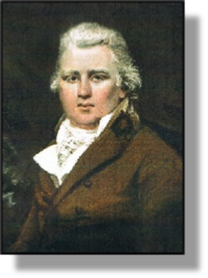 xxxxxThe English reformer and radical journalist William Cobbett, noted for his violent, prickly style, his sarcasm and his ready wit, well lived up to his pseudonym “Peter Porcupine”. For years his writings proved an embarrassment to the government of the day, and he was at times forced into exile or imprisoned on account of his vitriolic pen. Today, he is remembered above all for his series of controversial and challenging articles which he collected under the title Rural Rides in 1830. These provided a nostalgic look-
xxxxxThe English reformer and radical journalist William Cobbett, noted for his violent, prickly style, his sarcasm and his ready wit, well lived up to his pseudonym “Peter Porcupine”. For years his writings proved an embarrassment to the government of the day, and he was at times forced into exile or imprisoned on account of his vitriolic pen. Today, he is remembered above all for his series of controversial and challenging articles which he collected under the title Rural Rides in 1830. These provided a nostalgic look-
xxxxxCobbett was born in Farnham, Surrey, and, as the son of a farm labourer, acquired a love of the countryside and its way of life during his formative years. He virtually taught himself to read and write and then, at the age of 19, he suddenly decided to seek work in London. He worked for a while as a clerk, and then in 1784 enlisted in the army and saw six years of service in Canada. He eventually reached the rank of sergeant major, but in 1791 he became embroiled in the first of many controversies when he wrote about current abuses within the army, and made allegations of corruption. When counter-
xxxxxHere he made a living teaching English to French emigrés -
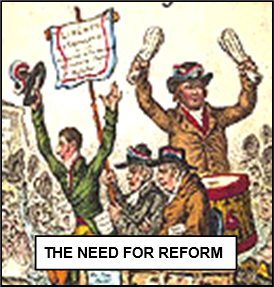
xxxxxOn arriving home in 1800 he found that his reputation had preceded him. The Tory government, led by William Pitt, wanted to employ his vindictive journalism in their service but, typically, Cobbett wanted to be his own man and would have none of it. In 1802 he did start a weekly conservative journal called the Political Register, which he published until his death, but it was by no means a Tory mouthpiece, and became progressively radical over the years, strongly advocating both social and parliamentary reform. Indeed, in the very first year of its publication he came out strongly against the Treaty of Amiens, negotiated, he insisted, for commercial reasons, and three years later he launched a scathing, savage attack upon a political system which, he claimed, compromised freedom, was basically corrupt and incompetent, and was bent on weakening the role of the aristocracy and the Church, the very fabric of the nation.
xxxxxCobbett was not, in fact, a radical at heart, and he was certainly not a revolutionary, but he was a serious danger to the government nonetheless. He yearned for a return to the good old days when the country’s economy was based on agriculture, and people of all classes worked in harmony with nature and each other. This desire to recreate what amounted to an imagined world, fed on nostalgia, gained a great deal of public support, and was an embarrassment to an administration struggling to cope with the social, economic and political problems thrown up by the Industrial Revolution. Soon a government which had sought his support as a journalist with a flair for words was attempting to stifle every one of them. In 1809 he was fined and imprisoned for two years for criticizing the use of flogging in the British army. Then in 1816 his constant and vehement hammering of the government over the plight of the “oppressed classes” -
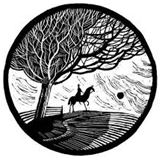 xxxxxOn his return to England at the end of 1819 he sought to regain his influence by championing parliamentary reform, but failed to gain a seat in Parliament throughout the 1820s. It was during this period, however, that, travelling on horseback, he carried out his famous tours of England, making daily recordings of the changing countryside and the worsening conditions of life on the land. He wrote
xxxxxOn his return to England at the end of 1819 he sought to regain his influence by championing parliamentary reform, but failed to gain a seat in Parliament throughout the 1820s. It was during this period, however, that, travelling on horseback, he carried out his famous tours of England, making daily recordings of the changing countryside and the worsening conditions of life on the land. He wrote 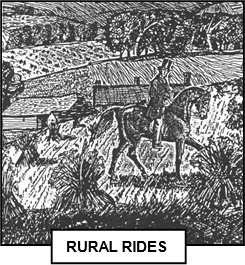 of farming methods, the country houses of the nouveau riche and, above all, the starvation and misery suffered by the labouring classes. His articles on the subject, written in a trenchant, lucid style, gave a graphic account of rural society at the very time that the Industrial Revolution was transforming the country into the world’s first and foremost manufacturing nation. They were published in his Political Register, and for the many who yearned for a return to more settled times, they made depressing reading. In 1830 Cobbett collected them into his two-
of farming methods, the country houses of the nouveau riche and, above all, the starvation and misery suffered by the labouring classes. His articles on the subject, written in a trenchant, lucid style, gave a graphic account of rural society at the very time that the Industrial Revolution was transforming the country into the world’s first and foremost manufacturing nation. They were published in his Political Register, and for the many who yearned for a return to more settled times, they made depressing reading. In 1830 Cobbett collected them into his two-
xxxxxBy now, Cobbett, more than ever aware of the plight of the rural poor, was a leading light in the working-
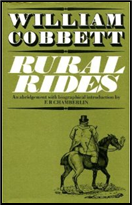 xxxxxIt might well be said that in his writings Cobbett indulged in false hopes, but his yearning for a return to what might even be called a feudal way of life was shared by many. Large sections of the public were disenchanted with the social and economic changes brought about by a long period of war and the ever growing demands of industrialisation. There was widespread anxiety about the way the nation’s future was going, and Cobbett, always ready for a good scrap, voiced that anxiety in the clearest and most passionate of terms. In so doing he pointed a nagging finger at the shortcomings of government, and the social ills of his day.
xxxxxIt might well be said that in his writings Cobbett indulged in false hopes, but his yearning for a return to what might even be called a feudal way of life was shared by many. Large sections of the public were disenchanted with the social and economic changes brought about by a long period of war and the ever growing demands of industrialisation. There was widespread anxiety about the way the nation’s future was going, and Cobbett, always ready for a good scrap, voiced that anxiety in the clearest and most passionate of terms. In so doing he pointed a nagging finger at the shortcomings of government, and the social ills of his day.
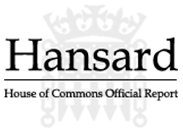 xxxxxIncidentally, it was Cobbett who began the unofficial publication of parliamentary debates in 1803. During his two years of imprisonment, starting in 1810, he sold the business to his printer, one Thomas Curson Hansard (1776-
xxxxxIncidentally, it was Cobbett who began the unofficial publication of parliamentary debates in 1803. During his two years of imprisonment, starting in 1810, he sold the business to his printer, one Thomas Curson Hansard (1776-
xxxxx…… As a journalist, Cobbett never pulled his punches. Following the death of King George IV in 1830, for example he wrote in his Political Register: “As a son, as a husband, as a father, and especially as an adviser of young men, I deem it my duty to say that, on a review of his whole life, I can find no one good thing to speak of, in either the conduct or the character of this king”. ……
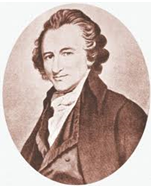 xxxxx…… He was a great admirer of the English political philosopher Thomas Paine, the author of The Rights of Man, and whose pamphlet Common Sense played such an influential part during the American War of Independence. We are told that whilst living in America Cobbett had Paine’s bones exhumed, and then brought them back to England in his baggage when he returned in 1819. He planned to give Paine a funeral befitting so great a man, but it seems that, somehow or other, the bones were lost and the funeral never took place. ……
xxxxx…… He was a great admirer of the English political philosopher Thomas Paine, the author of The Rights of Man, and whose pamphlet Common Sense played such an influential part during the American War of Independence. We are told that whilst living in America Cobbett had Paine’s bones exhumed, and then brought them back to England in his baggage when he returned in 1819. He planned to give Paine a funeral befitting so great a man, but it seems that, somehow or other, the bones were lost and the funeral never took place. ……
xxxxx…… For many years Cobbett managed a smallholding of about four acres in the village of Kensington. There he tried to encourage the growth of maize -
Acknowledgements
Cobbett: pastel by the English artist John Raphael Smith (1752-
G4-


